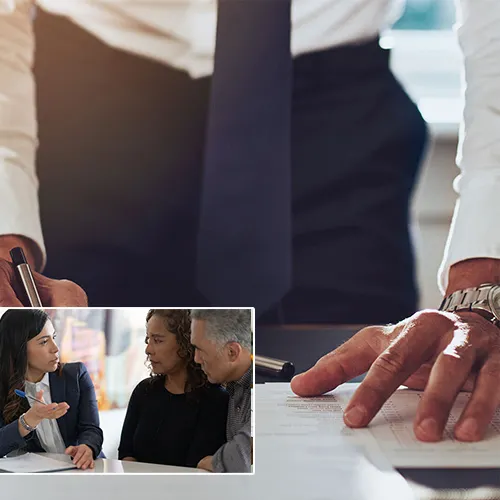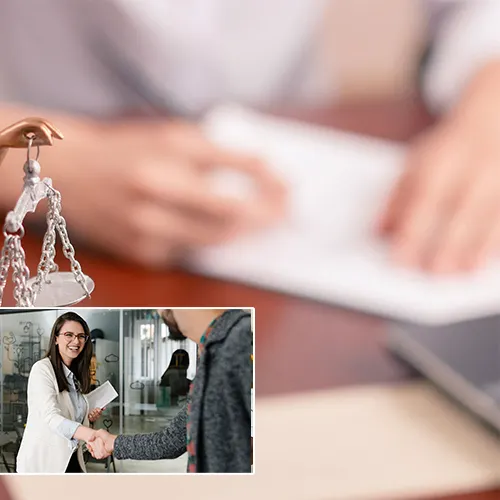Expert Tips: Recording DUI Traffic Stops Lawfully
Table of Contents []
Recording DUI Traffic Stops
Understanding Your Rights During DUI Traffic Stops

When you're pulled over for a suspected DUI, you may feel nervous and unsure of what to do next. But understanding your rights is paramount. At Akins Nowlin & Prewitt, we want you to know that recording traffic stops can be a powerful tool for ensuring legal compliance-by both you and the officer. Knowledge is power, and being informed can help protect you if things take an unexpected turn.
Our experts shed light on the legal landscape surrounding DUI traffic stops. We aim to educate visitors about their rights during these encounters. Additionally, if the need arises, we're here to connect you with legal professionals skilled in leveraging such recordings effectively. Remember, knowledge and preparation can make all the difference.
Don't hesitate to reach out to us with any questions or to book an appointment. Our team at Akins Nowlin & Prewitt is dedicated to ensuring you're equipped with the necessary tools and knowledge to navigate DUI traffic stops. Call us at (512) 244-0001 for immediate assistance.
Can I Legally Record a Traffic Stop?
Yes, it is generally legal to record traffic stops. You have the right under the First Amendment to record public officials, including police officers, in the line of duty as long as you're not interfering with their work. However, there are nuances depending on your state's laws, which we can clarify for you.
If you decide to record, it's crucial to inform the officer that you are doing so. This can help set the tone for transparency and accountability during the stop. Remember to keep your camera in a fixed position where it won't obstruct your interaction with law enforcement.
Why Should You Record Your Traffic Stop?
Recording can serve multiple purposes: it's a factual record of the interaction, can be used to address any disputes over what occurred, and ensures that both parties act within the bounds of the law. Moreover, such evidence can be invaluable in court if necessary.
At Akins Nowlin & Prewitt, we have seen countless cases where recordings have made all the difference. A video or audio account provides an unbiased narrative that can be reviewed by legal teams, judges, and juries.
Recording Best Practices
To ensure the recording is effective and admissible, there are best practices to follow. Make sure your recording device has sufficient battery and storage space prior to starting your journey. Also, having a mount for your device will allow for steady, clear footage.
Most importantly, remain respectful and calm during the traffic stop. This goes a long way not only in the interaction itself but also when reviewing the footage. Emotional composure during a stop is essential.
Legal Considerations for Recording DUI Traffic Stops

After deciding to record, it's vital to be aware of the legal landscape regarding these recordings. While federal ground rules apply, state and local laws can add layers of complexity. At Akins Nowlin & Prewitt, we navigate these waters to keep you informed.
Consent laws vary by state. Some require only one-party consent (which can be just you), while others require all parties to be aware of the recording. Knowing the law in your area is essential. Reach us at (512) 244-0001 to understand how these laws apply to you.
It's also important to consider when the recording should be disclosed. Our team recommends being upfront with the officer about your intention to record, which generally helps maintain a cooperative atmosphere.
State-by-State Consent Laws
Each state has unique eavesdropping or wiretapping laws that can affect your right to record. In some states, recording without consent is entirely off the table, while in others, you have more leniency. This is where local knowledge becomes invaluable.
We're adept at navigating these laws nationally, providing you with the insight needed to record confidently. You can trust Akins Nowlin & Prewitt to know the specifics for your area.
How to Inform an Officer You're Recording
When you inform the officer that you're recording, it's recommended to do so politely and clearly. You might say something like, "Officer, for both of our protection, I'm going to record our interaction. The recording device is here, and it will not interfere with our conversation."
Being sincere and non-confrontational sets a positive tone. Our team emphasizes the importance of communication for the overall outcome.
What Counts as Interference?
While recording is your right, it is crucial not to interfere with the officer's duties. Holding your phone or device towards the officer in a way that could be deemed threatening, or failing to comply with instructions because you're too focused on recording, might be considered interference.
Always ensure that your recording practices are safe and do not distract from the traffic stop's purpose. Akins Nowlin & Prewitt can guide you on how to do this correctly.
Navigating the Aftermath of a DUI Stop with Recorded Evidence

So, you've recorded the traffic stop-what now? The moments and days following a DUI stop are pivotal. Proper handling of the recording can significantly impact your case's direction. Here's where Akins Nowlin & Prewitt's familiarity with legal proceedings is instrumental.
If you find yourself facing charges, the recording could be a critical piece of evidence. But it's not just about having the recording; it's also about understanding how and when to utilize it. Our experts can help parse through the footage and audio, selecting parts that are most relevant to your defense.
Contact us at (512) 244-0001 for guidance on your next steps. You don't have to navigate this alone.
Storing the Recording
Securely storing your recording is the first step after the stop. Make backups and keep them in different locations, like cloud storage or an external hard drive. These precautions ensure that the evidence is preserved.
Preservation is key because these files might need to be reviewed by legal counsel. Akins Nowlin & Prewitt stresses that maintaining multiple copies protects against unexpected data loss.
Reviewing the Footage
After securing the recording, reviewing the footage is a must. Determine if your rights were violated or if the officer didn't follow proper protocol. Identifying these points early can inform your legal strategy moving forward.
Allow our legal professionals to assist with the review. They can provide their expertise in determining the recording's significance and how it can best serve your case.
Providing Evidence to Your Legal Team
Once you have determined the value of the recording, share it with your attorney. The evidence could play a pivotal role in your defense. Our network includes seasoned attorneys who understand how to strategically employ such recordings.
Presenting the evidence in its entirety to your legal team allows them to craft the most persuasive defense on your behalf. Akins Nowlin & Prewitt is dedicated to walking you through each step of this intricate process.
Tips for a Smooth Recording Experience

Getting the recording right can make a world of difference. A few tips can help ensure the process is smooth and the recording is effective. Take note of these points for a successful outcome should you need to record a DUI traffic stop.
We're not just about informing you-we want to empower you. Being cognizant of these tips could significantly influence the outcome of your traffic stop. Remember to reach out to us for any clarification or support at (512) 244-0001.
Equipment and Preparation
- Keep your recording device charged and ready.
- Ensure there is enough storage space for an extended recording.
- Consider a dashboard camera for continuous, hands-free recording.
- Test your equipment periodically to ensure it's working correctly.
During the Stop
- Start recording as soon as you're being pulled over.
- Place your device in a location where it can capture both audio and video effectively.
- Stay composed and respectful throughout the interaction.
- Do not sacrifice compliance with the officer's requests for the sake of recording.
Post-Traffic Stop Actions
- Make backups of the recording as soon as possible.
- Note down any additional details such as time, location, and the officer's badge number.
- Contact legal assistance early to discuss the potential use of your recording.
- Be prepared to securely share the recording with your attorney.
Connect with Akins Nowlin & Prewitt for Expert Legal Support

Have you recorded a DUI traffic stop and are unsure what to do with the footage? Akins Nowlin & Prewitt is here to provide clarity and guidance. We educate our visitors on their rights, and our network of legal professionals is ready to advocate for you. Using the evidence effectively is what we excel at.
Don't wait to secure your legal footing. The right advice and timely action can have a profound impact on your case. For expert guidance on ensuring the best outcome from your recording, contact us right away.
Our trustworthy team is on standby to support you in every step of the way. Get in touch and let's ensure that your rights are protected and your case is handled with the care it deserves. Reach out to us at (512) 244-0001 today.
Contact Us Now
Recording a DUI traffic stop can be a complex affair, but you're not alone. The expertise and support of Akins Nowlin & Prewitt's team are just a phone call away. We're ready to assist you, so don't hesitate to take the necessary steps towards protecting your rights.
For immediate help and advice on navigating the intricacies of your DUI traffic stop recording, call us now at (512) 244-0001. We're here to offer the legal support and knowledge that makes all the difference.
